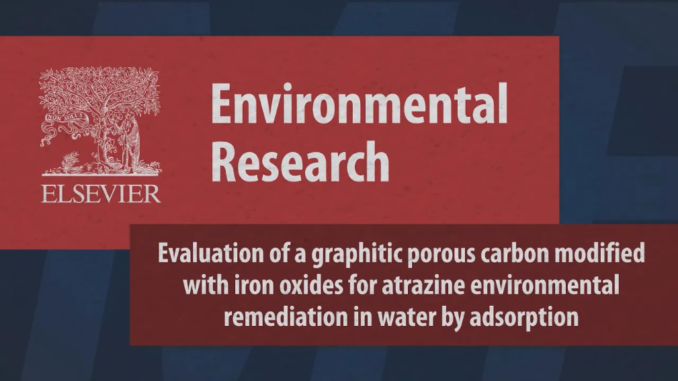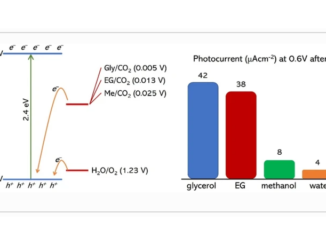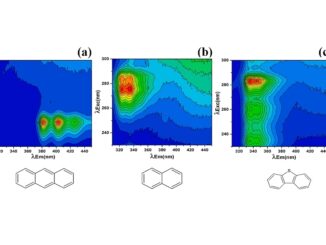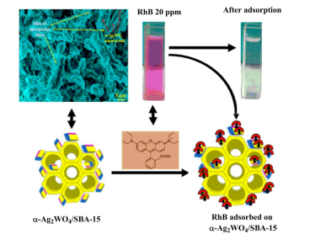
Evaluation of a graphitic porous carbon modified with iron oxides for atrazine environmental remediation in water by adsorption
Abstract: In the last decades, the growth of world agricultural activity has significantly contributed to the increased presence of emerging pollutants such as atrazine (ATZ) in aquatic ecosystems. Due to its high stability to the natural or artificial degradation processes, the ATZ environmental remediation by adsorption has been investigated. In this study, a graphitic-porous-carbon- (GPC) based material with magnetic domains was applied to remove ATZ from aqueous solution. ATZ high adsorption efficiency in a reduced time was achieved in the presence of the GPC adsorbent, leading to a detailed investigation of the mechanisms involved in the adsorption processes. Pseudo-first-order (PFO), pseudo-second-order (PSO), Ritchie, Elovich, and Weber-Morris models were applied to calculate the kinetic process efficiency. Likewise, adsorption isotherms based on Langmuir, Freundlich, Temkin, and Redlich-Peterson models were applied for a detailed understanding of the adsorption mechanisms. GPC was successfully applied for ATZ remediation in natural waters, confirming its high potential for treating natural waters contaminated by ATZ using adsorption process. The material can also be recovered and reused for up to 4 application cycles due to its magnetic properties, showing that in addition to ATZ adsorption efficiency, its sustainable use can be achieved.
Author(s): Oliveira, C.; Renda, C.G.; Moreira, A.J.; Pereira, O.A.P.; Pereira, E.C.; Freschi, G.P.G.; Bertholdo, R.
Environmental Research
Published: 15 February 2023, Volume 219, 115054
DOI: https://doi.org/10.1016/j.envres.2022.115054
CDMF
The CDMF, hosted at the Federal University of São Carlos (UFSCar), is one of the Research, Innovation and Dissemination Centers (RIDC) supported by the São Paulo State Research Support Foundation (Fapesp), and also receives investment from the National Council Scientific and Technological Development (CNPq), from the National Institute of Science and Technology of Materials in Nanotechnology (INCTMN).




